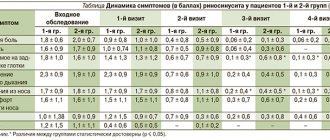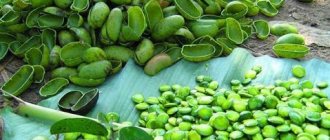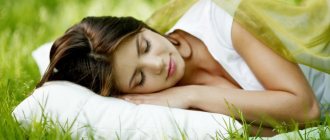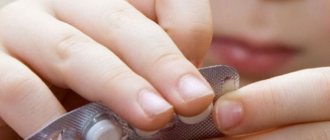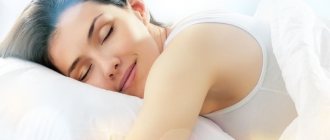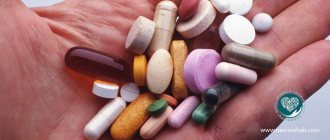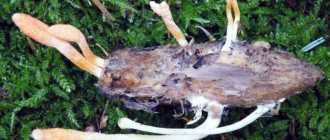The best treatment for depression is comprehensive. A specialist (psychotherapist or psychiatrist) creates an individual treatment plan and, based on the examination, selects only those components that correspond to the indications and contraindications. Typically, these are antidepressants combined with some other medications for depression, stress, and anxiety. The patient takes prescribed medications for depression until there is a therapeutic effect or stable remission. Treatment of depressive conditions takes quite a long time. As a rule, therapy lasts from 1.5 to 7 months.
Dry extract of St. John's wort in capsules - a natural sedative
St. John's wort is a perennial herb that is quite popular in Asia and Europe.
Our ancestors often used it to prepare healing mixtures. The herb was collected in the summer, dried and added to decoctions as needed. Today it is much easier to buy St. John's wort extract in an easy-to-use form - in capsules that do not require tea leaves or other preparation. St. John's wort capsules can be taken anywhere; they make it easier for people who work or lead an active lifestyle to stick to a dosage schedule.
St. John's wort extract: composition
The capsules consist of 100% water-soluble dry extract of St. John's wort (herb). St. John's wort extract contains the following active components:
- Flavonoids (hyperin, hypericin, rutin, hyperoside, quercitrin, leukoanthocyanins, myricetin). They have antioxidant and anti-inflammatory effects ;
- Saponins. They have diuretic, adaptogenic, sedative, and mild laxative properties;
- Essential oil. An effective antiseptic. Destroys microbes, viruses, protects the human body from adverse external factors ;
- Resins. The substance has antiseptic, wound healing and antioxidant effects;
- Ascorbic acid. Strong immunomodulator, anti-inflammatory agent ;
- Carotene. A vitamin that triggers cell regeneration and is responsible for good vision .
pharmachologic effect
St. John's wort has the following beneficial effects on the human body:
- Sedative, anxiolytic, antidepressant . St. John's wort contains large amounts of B vitamins, which are known for their sedative properties. St. John's wort extract has a calming effect on the nervous system, helps overcome severe stress, depression, and mental overload;
- Antioxidant . The product contains flavonoids in large quantities, which prevent oxidative processes, block free radicals, thereby prolonging the youth of the body;
- St. John's wort extract in tablets has a diuretic and choleretic effect . St. John's wort extract capsules help remove excess fluid and stimulate the flow of bile from the liver;
- St. John's wort has anthelmintic and anthelmintic effects . The herb St. John's wort helps fight intestinal parasites;
- Expectorant . St. John's wort extract helps liquefy and remove mucus from the respiratory tract (bronchial tubes, lungs);
- Tonic . St. John's wort naturally increases physical and mental performance, also normalizes sleep and improves mood;
- Antispasmodic, analgesic . St. John's wort effectively relieves spasms of smooth muscles of the gastrointestinal tract, eliminates intestinal colic;
- Anti-inflammatory, antimicrobial . St. John's wort extract is recommended for the treatment of microbial infections of various localizations. The active components of the herbal remedy destroy pathogenic microorganisms and inhibit the proliferation of bacteria;
- Astringent, regenerative . The herb St. John's wort has the ability to enhance tissue regeneration, so it will be useful for various damage to the skin: wounds, burns, erosive processes. Thanks to the astringent properties of St. John's wort, the herbal remedy effectively restores the structure of the mucous membranes of the inner walls of the intestines.
Antidepressants
Should I take antidepressants for severe depression? Many people believe that such drugs are addictive. If previously drugs that could cause addiction and drug dependence were used in psychotherapy, today new generation drugs are used that affect the human body and psyche more gently and sparingly.
Among the reasons for mistrust in the use of antidepressants for depression is the fact that if the course of treatment is interrupted, a person may feel worse. If withdrawal symptoms occur, this indicates incorrect discontinuation of the prescribed drug. You should not perceive this reaction of the body as dependence on pills.
If you stop the artificial synthesis of brain neurotransmitters, their quantity in the human body will drop sharply. Patients feel that their depression or anxiety disorder is returning as anxiety increases. Any changes in your condition should be reported to your doctor. The specialist knows how to smoothly discontinue the prescribed medication. In combination with psychotherapy, pharmacotherapy works well, giving long-term results.
There are several groups of medications for anxiety and depression.
Tricyclic
The first group includes medications that have a three-cyclic structure; they are not sedatives and prevent the immediate breakdown of neurotransmitters (serotonin and norepinephrine). They do not disappear from the nerve endings, their synthesis increases, as does the amount of serotonin. These medications have a number of contraindications; they are not recommended for people who have kidney and liver diseases, glaucoma, atherosclerosis, or use of narcotic substances.
Monoamine oxidase inhibitors (MAOIs)
MAOIs are monoamine neurotransmitters that regulate our emotions, as well as a number of processes in the brain: attention, cognitive functions, memory, arousal. Due to the inhibition of leasing, the amount of monoamines increases and their accumulation in nerve endings. Some groups of these drugs are contraindicated for pregnant women and people with work that requires concentration, as well as for hypertensive patients.
Selective serotonin uptake inhibitors (SSRIs)
The third group of drugs for the treatment of depression includes selective serotonin uptake inhibitors. Medicines are prescribed to replenish “happiness hormones”. Do not think that this happens quickly; the process of restoration of neurotransmitters is gradual. SSRIs have one important advantage - when the drugs are abruptly stopped, there is no withdrawal syndrome. Contraindications to their use include diseases of the genitourinary system, as well as alcoholism and drug addiction.
If a person has developed alcoholism due to depression, he should not take antidepressants, since alcohol increases the side effects of the medication for depression. Symptoms of the disorder may increase significantly and the condition may worsen. Quite often, psychological reasons cause the development of alcohol dependence; the risk of depression in alcoholics is several times higher than in healthy people. The first group of anti-depression drugs is especially dangerous to combine with ethanol, as this leads to a sharp increase in blood pressure.
Which antidepressant is best for anxiety and depression? Your doctor will answer this question; the choice of medications should always take into account the individual characteristics of the patient’s body.
Do you want to know about the cost of services?
8 call our specialist
Indications for use of St. John's wort extract
St. John's wort extract in capsules is recommended for:
- Prevention and diseases of the gastrointestinal tract (gastritis, peptic ulcer of the stomach and duodenum, diarrhea);
- For problems with the liver, kidneys, urinary and gall bladder (urolithiasis and cholelithiasis, cystitis, hepatitis);
- Psychovegetative disorders (depressed mood, apathy), neurotic reactions;
- Depressive states of moderate and mild severity. Depression is a loss of interest in usual activities or a lack of pleasure in activities that previously caused positive emotions for a long period (2 weeks or more). St. John's wort extract in capsules has a mild antidepressant effect, so it can be successfully used in the initial stages of the disease;
- OCD (obsessive-compulsive disorder). This is a type of disorder that appears as a result of too strong psycho-emotional stress and is expressed in repeated compulsive actions. This disease is difficult to treat, but in the initial stages St. John's wort extract is successfully used for correction;
- Premenstrual syndrome, menopause. PMS is characterized by many symptoms, the most commonly mentioned being rash, bloating, swelling, breast tenderness, irritability, pain, and depression. St. John's wort herb normalizes hormonal levels and can reduce the severity of the above conditions;
- Somatoform disorders, agitation, exhaustion, nervousness, sleep disorders, and other neurological dysfunctions.
There is probably no such disease that they would not try to treat with St. John's wort. People say: “Just as you can’t bake bread without flour, you can’t cure a person without St. John’s wort.” This plant has many names - St. John's wort, St. John's wort, St. John's wort, St. John's wort, St. John's wort, St. John's wort, St. John's wort, St. John's wort, field pharmacy.
The generic name “Nurericum” is derived from two Greek words: “huro” - under and “ereike” - heather; it turns out “growing under heather”, or “resembling heather”. The name “perforatum” - perforated or perforated - the plant received because of the small transparent containers scattered throughout the leaf blade.
The most famous name of the herb “St. John’s wort” comes, according to some assumptions, from the Kazakh “dzherabai”, meaning “healer of wounds”, according to others - due to the ability of St. John’s wort to cause disease in sheep. Moreover, not all animals fed with St. John's wort get sick, but only white or variegated ones, and only on a bright sunny day. Swellings form on the head of such animals, growing into ulcers, and severe itching appears. But, as soon as a sick sheep moves into the shade, after a while all painful phenomena disappear. It turns out that St. John's wort contains substances (hypericin and other condensed anthracene-derivative glycosides) that increase skin sensitivity to ultraviolet rays.
In the old days, St. John's wort was considered a magical plant. In rural areas, when stuffing children's mattresses, they always added St. John's wort to the straw so that the smell of this plant would protect the child from fright in his sleep. St. John's wort was a favorite remedy of Paracelsus, used against spirits hostile to man. He wrote: “The veins on its leaves are signatures. If they are pierced, this means that the plant drives away all the ghosts around the person. ... Nurericum (St. John's wort) is an almost universal medicine.” There is also a mention of St. John's wort in Ayurveda: “Its nature is hot and dry in the second degree. St. John's wort has a cleansing, drying and resolving effect.” St. John's wort was considered a medicinal plant in both Ancient Greece and Rome. Hippocrates, Dioscorides and Pliny the Elder wrote about him. Avicenna recommended “drinking it for forty days in a row to cure inflammation of the sciatic nerve; and take the seed internally to stop the fever.” In Kievan Rus, St. John's wort was considered a herb for 99 diseases. By order of Tsar Michael, St. John's wort was collected in Siberia, dried, ground into flour and sent to Moscow “by the pound for every year.”
St. John's wort is a perennial herbaceous plant of the St. John's wort family, 30–100 cm high. The stems are smooth, round, with two lateral ribs, branched at the top. The rhizome of St. John's wort is thin, highly branched. Leaves with numerous translucent light and black glands. On examination they appear to be punctured. St. John's wort blooms from June to August. The flowers are collected in an inflorescence. The petals are bright yellow. The fruit of St. John's wort is a three-lobed capsule. The seeds are small, oblong, brown. St. John's wort is distributed throughout almost the entire European part of Russia, the Caucasus, Western and Eastern Siberia, as well as in the mountains of Central Asia. It grows in dry meadows, hills, clearings and forest edges, in sparse forests and among bushes. It is found as a weed near roads and along the edges of fields.
The name “St. John's wort” is explained by the small black dots that cover the flowers and leaves. We are not talking about holes, but about small glands filled with a red dye - hypericin. When collected independently, this is a sure sign of identification of St. John's wort: if you rub a flower or bud between your thumb and forefinger, they will turn dark red. Hypericin is especially necessary for the treatment of depression, stress, and nervous breakdowns; it does not have any side effects on the central nervous system.
St. John's wort herb is harvested in the flowering phase of the plant (before the appearance of unripe fruits), cutting off the leafy tops without the rough bases of the stems.
The main active ingredients of the herb St. John's wort are condensed anthracene derivatives - hypericin and pseudohypericin. Their number is about 0.5%. Hypericin and pseudohypericin are accompanied by resinous substances, the content of which reaches up to 17%. St. John's wort herb contains flavonoid glycosides of the flavonol group: rutin, quercitrin, hyperoside, myricetin, leukoanthocyanidins and anthocyanins (5–6%). The hyperoside content in the grass reaches 1.0–1.2%. Along with anthracene and flavonol derivatives, St. John's wort contains tannins (up to 10%), essential oil (0.2–0.3%), saponins, ascorbic acid, carotene (up to 55 mg/100 g).
St. John's wort preparations have astringent, anti-inflammatory, antiseptic and tissue regeneration stimulating properties. Medicinal preparations from St. John's wort have a beneficial effect on the functional state of the central and autonomic nervous system. Bioflavonoids contained in St. John's wort bind to benzodiazepine receptors and have a sedative effect. The drugs improve mood, increase mental and physical performance, and normalize sleep. The antidepressant effect is due to the ability to inhibit the reuptake of serotonin, norepinephrine and dopamine; St. John's wort preparations do not have contraindications and side effects, which become constant companions of chemical antidepressants.
Infusions, tinctures and extracts are obtained from the herb St. John's wort. The drugs Novoimanin, Negrustin, St. John's wort, Gelarium Hypericum, Deprim, Deprim forte are registered on the market. St. John's wort herb is included in the herbal mixtures “Brusniver” and “Brusniver-T”, “Arfazetin”, “Mirfazetin”, etc.
St. John's wort infusion (10 g per 200 ml) is used as an astringent, disinfectant and anti-inflammatory agent orally for diseases of the gastrointestinal tract, acute and chronic colitis of non-bacterial origin. Take 100 ml orally 3 times a day before meals for 1–2 months.
St. John's wort tincture and the drug Novoimanin have an antimicrobial and anti-inflammatory effect. Inhibits the growth of predominantly gram-positive microorganisms, such as Streptococcus pyogenes and Streptococcus agalactiae, penicillin-resistant Staphylococcus aureus and methicillin-resistant Staphylococcus aureus. Indicated for abscesses, phlegmon, infected wounds, burns (I–III degree), trophic ulcers, pyoderma, mastitis, rhinitis, pharyngitis, sinusitis.
St. John's wort tincture in 40% alcohol (1:5) is used as an astringent and anti-inflammatory agent in dentistry (40–50 drops 3–4 times a day) and for rinsing (30–40 drops in half a glass of water).
Novoimanin is used externally, in the form of a solution for wet dressings, rinsing cavities, electrophoresis, inhalations and drops (external auditory and nasal canal); Before use, the alcohol solution is diluted 1: 5–10–25–100 with sterile distilled water, a sterile 10% dextrose solution or a 0.25% procaine solution. Solutions obtained by diluting a 1% alcohol solution are suitable for use during the day. During the treatment period, care must be taken when driving vehicles and engaging in potentially hazardous activities that require increased concentration and speed of psychomotor reactions.
Medicines based on St. John's wort concentrate are indicated for the treatment of mild and moderate depression. They have antidepressant, anxiolytic and sedative effects. Negrustin is taken 1 capsule 1-2 times a day or 1 ml of oral solution 3 times a day (undiluted or with a small amount of water with meals) for 6-8 weeks. St. John's wort is prescribed 1-2 tablets 3 times a day for at least 3 weeks, it is possible to increase the duration of treatment to 3 months (no more). Gelarium Hypericum is used 1 tablet 3 times a day for at least 4 weeks, Deprim - 1 tablet 3 times a day for 4-6 weeks, Deprim Forte - 1 capsule 1-2 times a day for 4-6 weeks
For all its popularity, St. John's wort is far from harmless. It should not be used for a long time in case of arterial hypertension and severe depression. It is contraindicated in childhood (under 12 years), during pregnancy and lactation. Even in healthy people, drinking large amounts of strongly brewed St. John's wort tea can cause symptoms of acute gastritis (nausea, pain in the epigastric region, dry oral mucosa, diarrhea or constipation), and in those suffering from hyperacid gastritis or gastric ulcer, severe overdose may occur. spasms and pain in the intestines. Amino acids, trictophan and tyrosine, amphetamines, monoamine oxidase inhibitors, antidepressants should not be used simultaneously with St. John's wort (the interval between doses should be at least 14 days). When used together with fluoxetine, paroxetine, sertraline, fluvoxamine or citalopram, St. John's wort aggravates hemolytic reactions and the course of “serotonin syndrome” (increased sweating, tremor, dizziness, nausea, vomiting, headache, epigastric pain, restlessness, anxiety, state of confusion, confusion , anxiety and irritability).
On the part of the hematopoietic organs, an overdose can cause iron deficiency anemia. St. John's wort increases the skin's sensitivity to ultraviolet rays, so after drinking tea or herbal infusion, you must refrain from sunbathing and avoid being in the sun. If this rule is violated, St. John's wort can cause sunburn of the skin, eczema, skin pigmentation and even severe dermatitis. They are especially difficult for blondes and people with delicate skin that does not take well to tanning. In case of chronic intoxication, UV radiation should be avoided for 1–2 weeks.
St. John's wort preparations can enhance the photosensitizing effect of other drugs: tetracyclines, sulfonamides, thiazide diuretics, quinolones, piroxicam, etc. They prolong sleep caused by drugs for general anesthesia and narcotic analgesics, but shorten sleep caused by barbiturates. St. John's wort reduces the hypotensive effect of reserpine and reduces the concentration of cyclosporine in the blood. St. John's wort reduces the concentration of indinavir in the blood, increases the rate of metabolism of theophylline, reducing the concentration of digoxin in the blood, and reduces its effectiveness. When used simultaneously with ethinyl estradiol and desogestrel, the risk of breakthrough bleeding increases.
During treatment with St. John's wort, it is necessary to refrain from drinking ethanol-containing drinks and avoid UV radiation (including solarium, UV lamps, prolonged exposure to sunlight) for 1–2 weeks.
Beer, coffee, wine, chocolate, smoked or pickled foods, and yoghurt do not go well with St. John's wort.
St. John's wort is widely used in homeopathy. The whole flowering plant is used to prepare the homeopathic remedy Hypericum. It is given to alleviate the condition after a concussion, depression of various natures and nerve pain after injuries.
In folk medicine, as in official medicine, St. John's wort is used primarily for the treatment of wounds and pain, in the treatment of diseases of the lungs, stomach, intestines and gall bladder, for diarrhea and nervous disorders. They use tea, oil, and alcohol extract (tincture) in equal measure, which is used to disinfect wounds.
The popular name “Ivan's grass” is associated with the fact that St. John's wort begins to bloom on Midsummer's Day, and the name “Ivan's Blood” is associated with the legend of the death of John the Baptist. When Herod killed John the Baptist, several drops of blood fell to the ground and grass grew in that place, absorbing John’s blood. This herb is St. John's wort. The leaves and petals of St. John's wort actually contain a bright red pigment that looks like blood.
Information about the authors: Samylina Irina Aleksandrovna – Doctor of Pharmaceutical Sciences, Professor, Corresponding Member of the Russian Academy of Medical Sciences, Director of the Research Institute of Pharmacy; Head of the Department of Pharmacognosy, First Moscow State Medical University named after. THEM. Sechenov. Tel.; Sorokina Alla Anatolyevna – Doctor of Pharmaceutical Sciences, Professor of the Department of Pharmacognosy of the First Moscow State Medical University named after. THEM. Sechenov. Tel.; Pyatigorskaya Natalya Valerievna – Candidate of Pharmaceutical Sciences, Associate Professor, Deputy Director of the Research Institute of Pharmacy for Scientific Work of the First Moscow State Medical University named after. THEM. Sechenov. Tel.
St. John's wort extract in tablets: method of use
Adults take dry extract of St. John's wort 2-3 capsules per day, children over 12 years old - 1-2 capsules 15-20 minutes before meals, washed down with water. The duration of the course depends on the person’s condition and can vary from 14 to 30 days. It is recommended to repeat courses up to 3-4 times a year.
You should not take St. John's wort extract while taking antibiotics, hormonal contraceptives, antiretroviral therapy for HIV infection, or before undergoing surgery with anesthesia. The use of this herbal remedy may lead to a change in the effectiveness of the above medications.
Features of prescribing drugs to calm nerves and against depression
Medicines for depression and anxiety have a pronounced effect; these are potent drugs that have a number of contraindications and side effects if the doctor’s prescription and instructions for use are not followed.
This is why you cannot buy medications for depression without prescriptions in our country. It is impossible to either prescribe or stop taking anti-depression medications on your own; this can affect mental health and lead to the development of depressive conditions and even suicidal thoughts. Therefore, it is very important to follow all the doctor’s recommendations, take medications for depression and stress in the dosage in which the doctor prescribed them. Even if a person’s mood improves after a week and the main symptoms disappear, they cannot stop taking the medicine.
The drug method is quite effective for anxiety-depressive disorders and neurotic conditions. It is important that the diagnosis of depression be made by a specialist, since taking medications simply to lift your mood in the absence of mental abnormalities can only cause a number of side effects. Antidepressants, antipsychotics and tranquilizers are potent drugs that are prescribed only with a doctor-confirmed diagnosis. Self-medication is unacceptable. Next, we will consider the main medications for stress and depression that are prescribed to patients.
- You can't convince me to get treatment
? - We will help you with motivation for treatment. As a rule, it is difficult for loved ones to persuade or force an addict to undergo treatment. World experts have developed EFFECTIVE motivation schemes, using which you can lead an addict to the decision to seek help. 8
Contraindications to taking St. John's wort and side effects
Often medications have widespread consequences. Do not forget that herbs are the basis of many medicinal products. If you exceed the consumption norm or you know for sure that you are unlucky enough to become allergic to certain foods, in this case herbs, a number of unpleasant consequences may occur if you take them. Therefore, all medications, as well as traditional medicine products, should be taken strictly according to the indicated dosage.
Contraindications to the use of St. John's wort extract are:
- Hypertension;
- Pregnancy and lactation;
- Individual intolerance.
If you have an allergy or intolerance to the drug, adverse reactions may occur, such as:
- Nausea, flatulence, constipation or diarrhea;
- Redness, itching of the skin, rash;
- Decreased appetite, the appearance of a feeling of bitterness.

